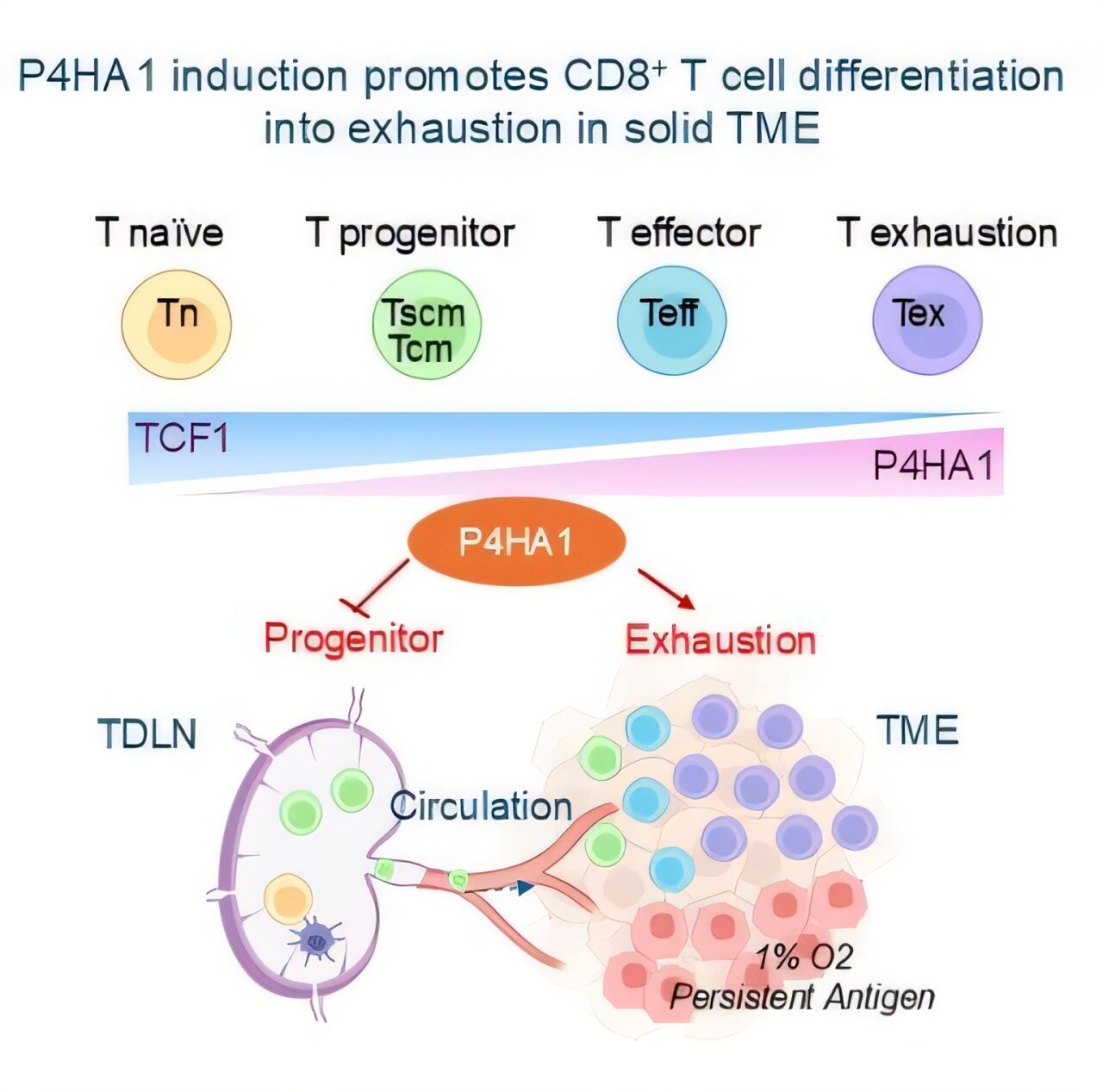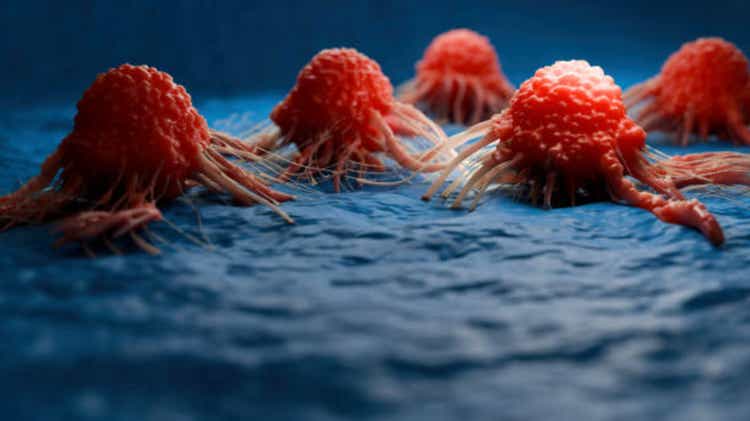Treatment Innovations
-
Facebook
-
Twitter
-
Linkedin
Innovations in cancer treatment are transforming patient care by introducing more precise, effective, and less invasive therapies. Immunotherapy, including checkpoint inhibitors and CAR-T cell therapy, has revolutionized cancer care by harnessing the immune system to target and destroy cancer cells.

Neoadjuvant Chemoradiation Plus Immunotherapy Boosts Responses in Esophageal Cancer
Phase III trial suggests regimen ‘has the potential to become the new standard of care’

Bristol Myers’ colorectal cancer drug significantly reduces relapse risk
Clinical trials indicate that Bristol Myers’ new drug effectively lowers the risk of cancer relapse in colorectal patients.

asy Breakfast Ideas That May Lower Your Cancer Risk
Discover simple and nutritious breakfast recipes that could help reduce the risk of cancer, according to nutrition experts.

Multiparametric MRI Expedites Treatment in Muscle-Invasive Bladder Cancer
FRIDAY, Jan. 24, 2025 (HealthDay News) — Incorporating multiparametric magnetic resonance imaging (mpMRI) for initial staging can reduce the time to correct tr

Tracking periods could save your life, doctor warns
<span id="docs-internal-guid-81c4d712-7fff-cf68-1169-5eeab0899cbc">One of the most common cancers, particularly in young people, could be overlooked in its early stages</span>

Prostate cancer and AI: The exciting advances that could transform treatment
Exploring how artificial intelligence is revolutionizing prostate cancer treatment, from early detection to personalized therapy plans.

Cancer breakthrough: New jab could slash risk of cervical cancer
More than half of those given a new vaccine in a clinical trial saw their pre-cancerous cells destroyed

Video games could accelerate discoveries in cancer research
Cancer research is complex, but video games can help. Jeff Yoshimi believes gamers can contribute to scientific breakthroughs.

Study shows a key to longer survival for cancer patients
a key to longer survival for cancer patients

Chinese team says vaccine shows promise in treating breast cancer in mice
Nanovaccine achieved tumour inhibition rate of 89.3 per cent when tested on mice with aggressive form of the disease, study finds.

New breakthrough in cancer research offers hope for early detection
Scientists have developed a novel method for early cancer detection, potentially increasing survival rates through earlier interventions.

Revolutionary’ move in curing cancer on the horizon
A biotech company’s CEO discusses upcoming revolutionary approaches in cancer treatment, highlighting the role of new technologies.

Pfizer announces successful trial results for colorectal cancer drug
Pfizer’s latest clinical trial shows promising results for its new colorectal cancer drug, marking a significant advancement in treatment options.

Key enzyme identified as potential target for cancer immunotherapy
Scientists from A*STAR Genome Institute of Singapore (A*STAR GIS) have uncovered that a key enzyme—P4HA1 prolyl hydroxylase, is strongly induced in CD8+ T cells in solid cancer, the primary immune cells involved in combating cancer. P4HA1 causes disruptions in energy production within the cells, which leads to weaker immune cells that are less able to fight cancer and form long-lasting anti-cancer immunity, highlighting P4HA1 as a promising target for treating solid tumors.

FDA Approves Amgen Treatment For Pretreated Colorectal Cancer With Certain Mutation – Amgen (NASDAQ:AMGN) – Benzinga
Amgen’s Lumakras treatment, combined with Vectibix, is FDA-approved for KRAS G12C-mutated colorectal cancer.

Biomarker algorithm for Barrett’s esophagus and esophageal cancer developed
By studying biomarkers known to be involved in gastrointestinal cancers, researchers at the Johns Hopkins Kimmel Cancer Center and the Johns Hopkins University School of Medicine have developed a biomarker algorithm that, when combined with a noninvasive method to collect esophageal cells for study, could give clinicians insight into which patients [SJMM1] have esophageal cancer or precancerous conditions such as Barrett’s esophagus (BE) or high-grade dysplasia. Typically, such determinations are made by endoscopy, an invasive procedure performed with patients under anesthesia.

New breast cancer treatment — and more headlines
Medical Watch Digest For Jan 22 New Breast Cancer Treatment A new drug candidate to help women with breast cancerThis drug works and it does not have the same side effects as current treatments acc…

Aspirin does not help prevent colon cancer recurrence
Aspirin does not help prevent colon cancer recurrence

Best-selling Apple product ‘has been exposing us to CANCER’
Apple has been accused of exposing users to cancer in a new lawsuit that claims one of tech giant’s best-selling products contain high levels of cancer-causing ‘forever chemicals.’

Tool gives more accurate estimates of recurrence risk and individual chemotherapy benefit in node-positive breast cancer
A new statistical tool that combines multiple clinical and pathologic factors with a patient’s 21-gene Oncotype DX Breast Recurrence Score result provides more accurate estimates about that patient’s breast cancer prognosis and their potential benefit from chemotherapy than either the Recurrence Score result or clinical factors alone.

Arrivent Biopharma targets gastrointestinal cancer with new facility in Delaware County
Arrivent Biopharma is establishing a new facility in Delaware County to advance treatments for gastrointestinal cancers, aiming to enhance research and development in the region.

Merck and Eisai announce positive Phase 3 results for Keytruda and Lenvima combination
The combination of Keytruda and Lenvima met primary endpoints in a Phase 3 trial, showing significant improvement in overall survival for patients with advanced cancers.

KU, Children’s Mercy, Saint Luke’s focus on precision medicine – Kansas City Business Journal
Using a patient’s genomics to craft a treatment plan shows great promise for cancer and rare disease patients, and these three KC-area providers are dialing up their offerings.

The #1 Cancer-Fighting Food To Eat Because It ‘Slows Tumor Growth’ And Blocks Its Ability To Spread, Health Expert Reveals | SHEfinds
Cancer is a complex disease characterized by the uncontrolled growth of abnormal cells in the body.






